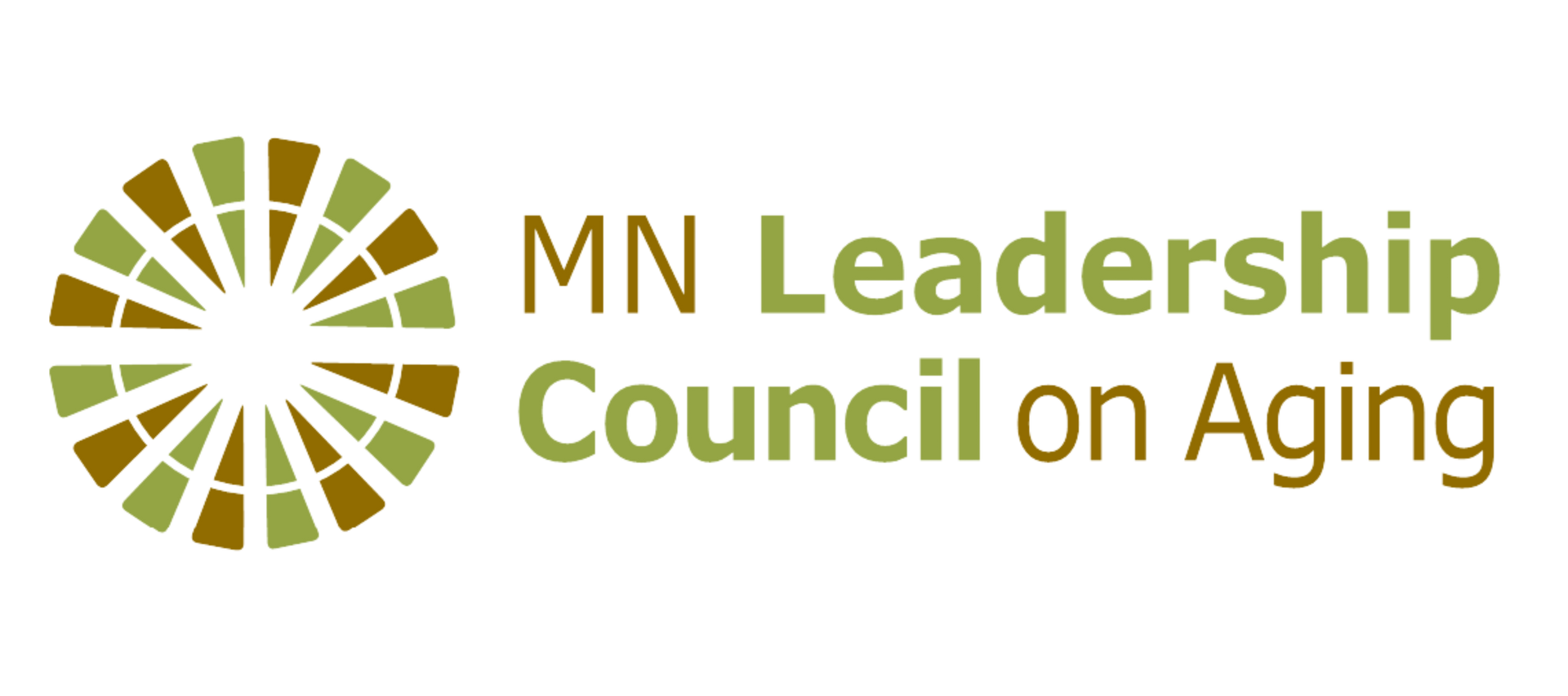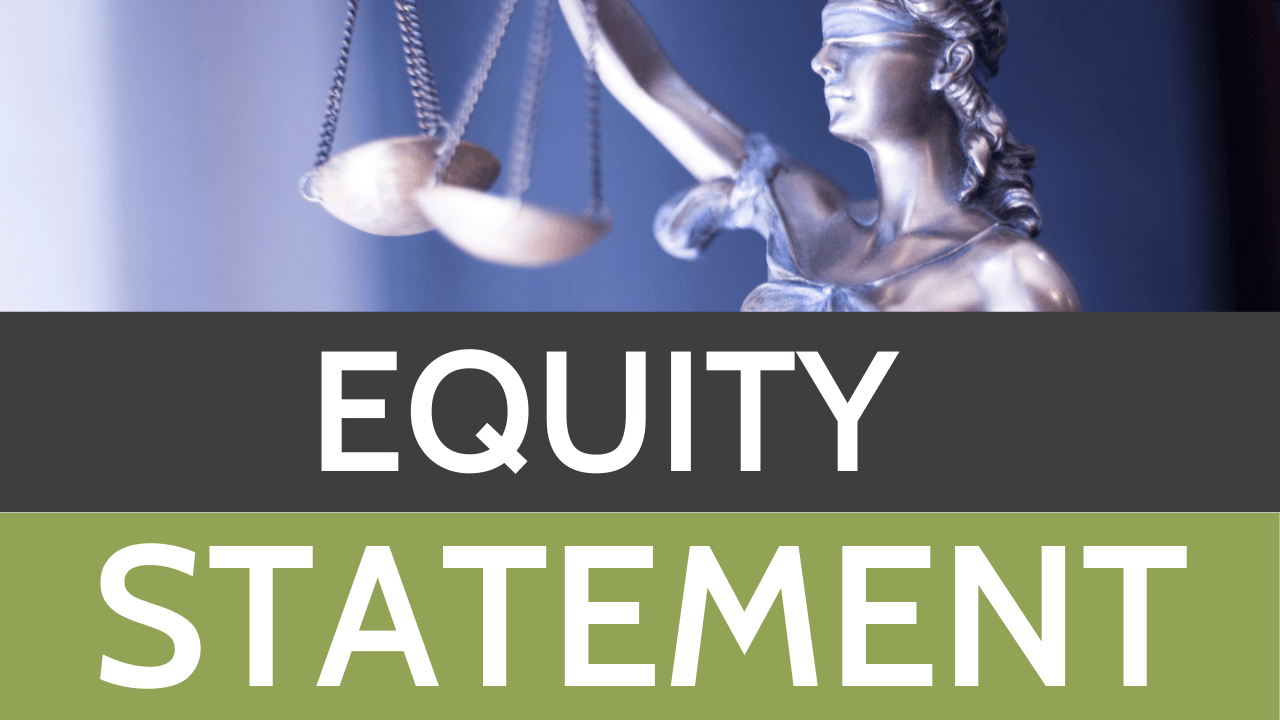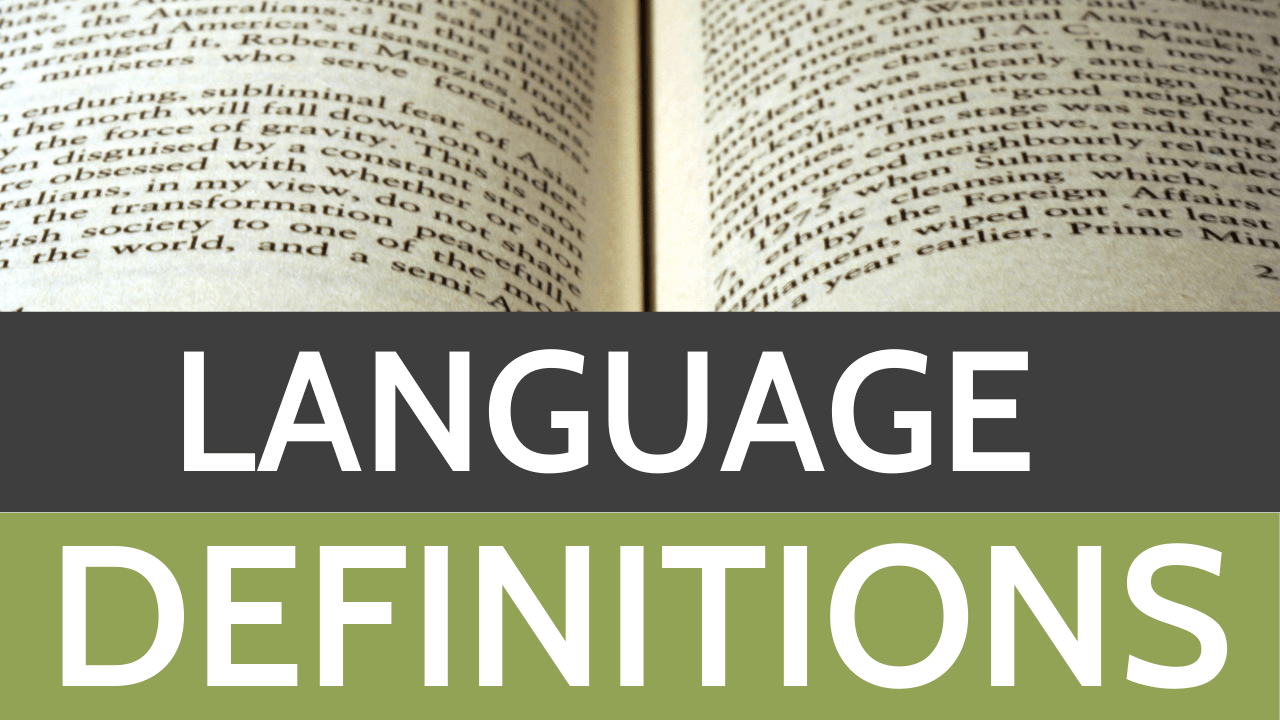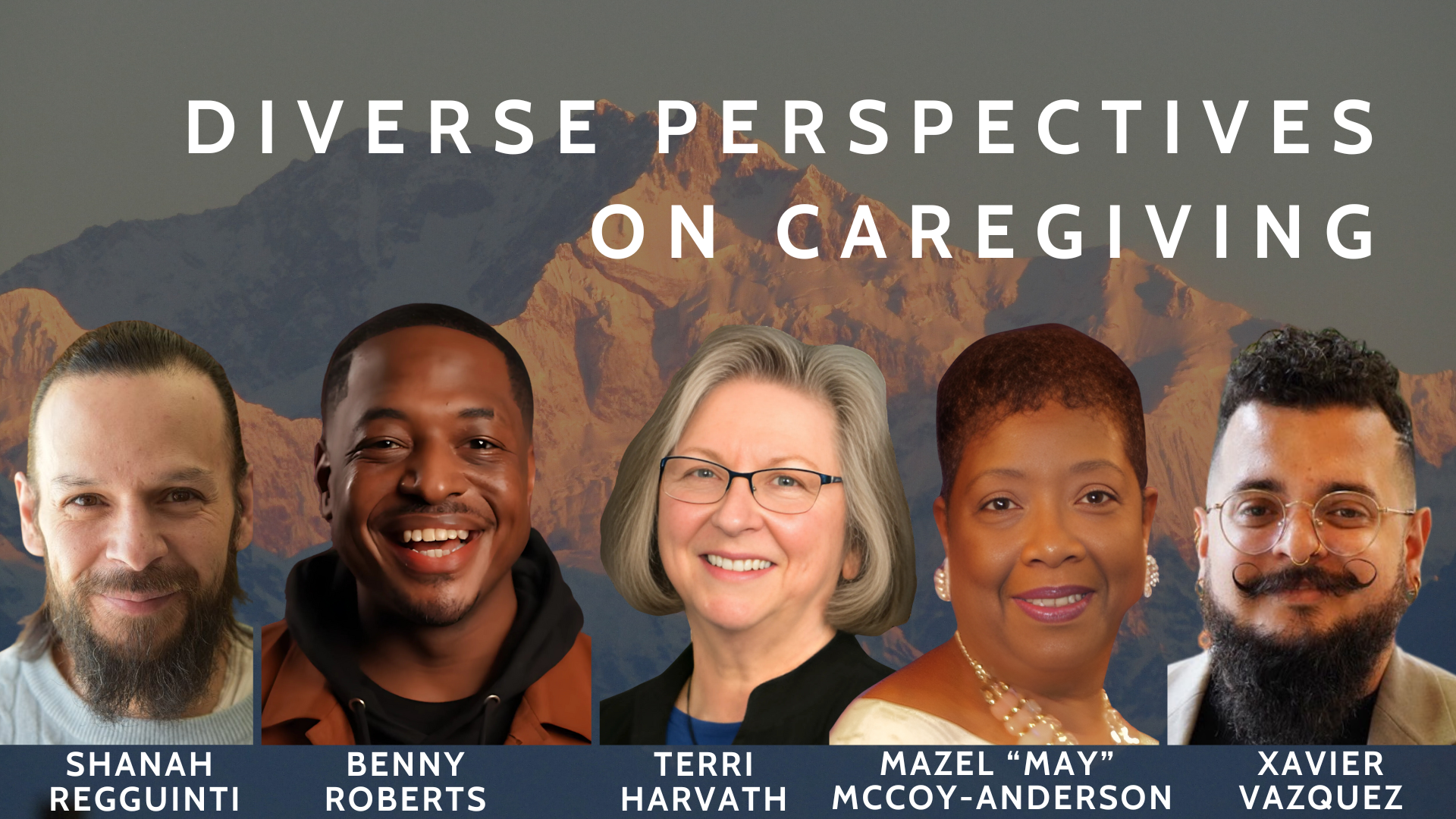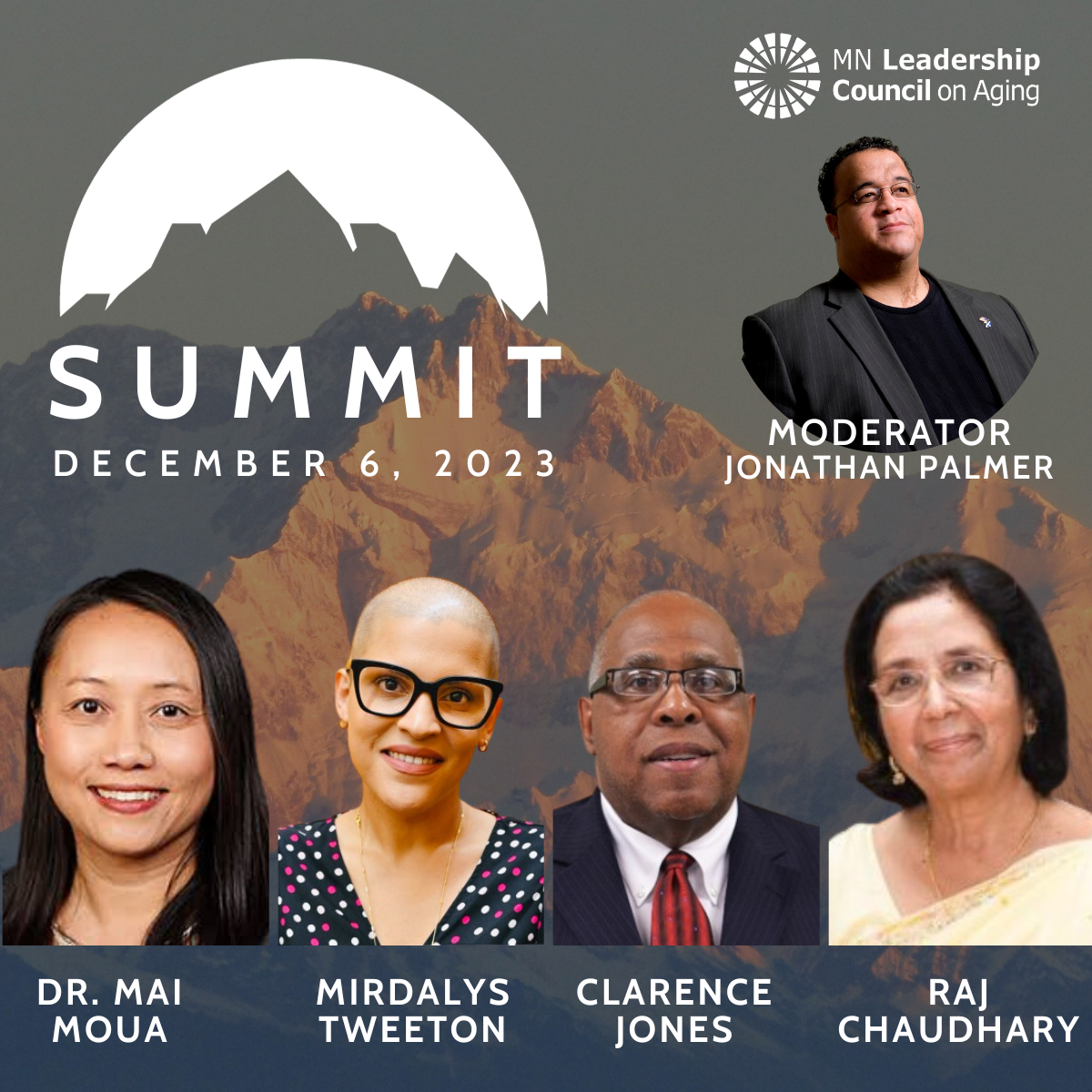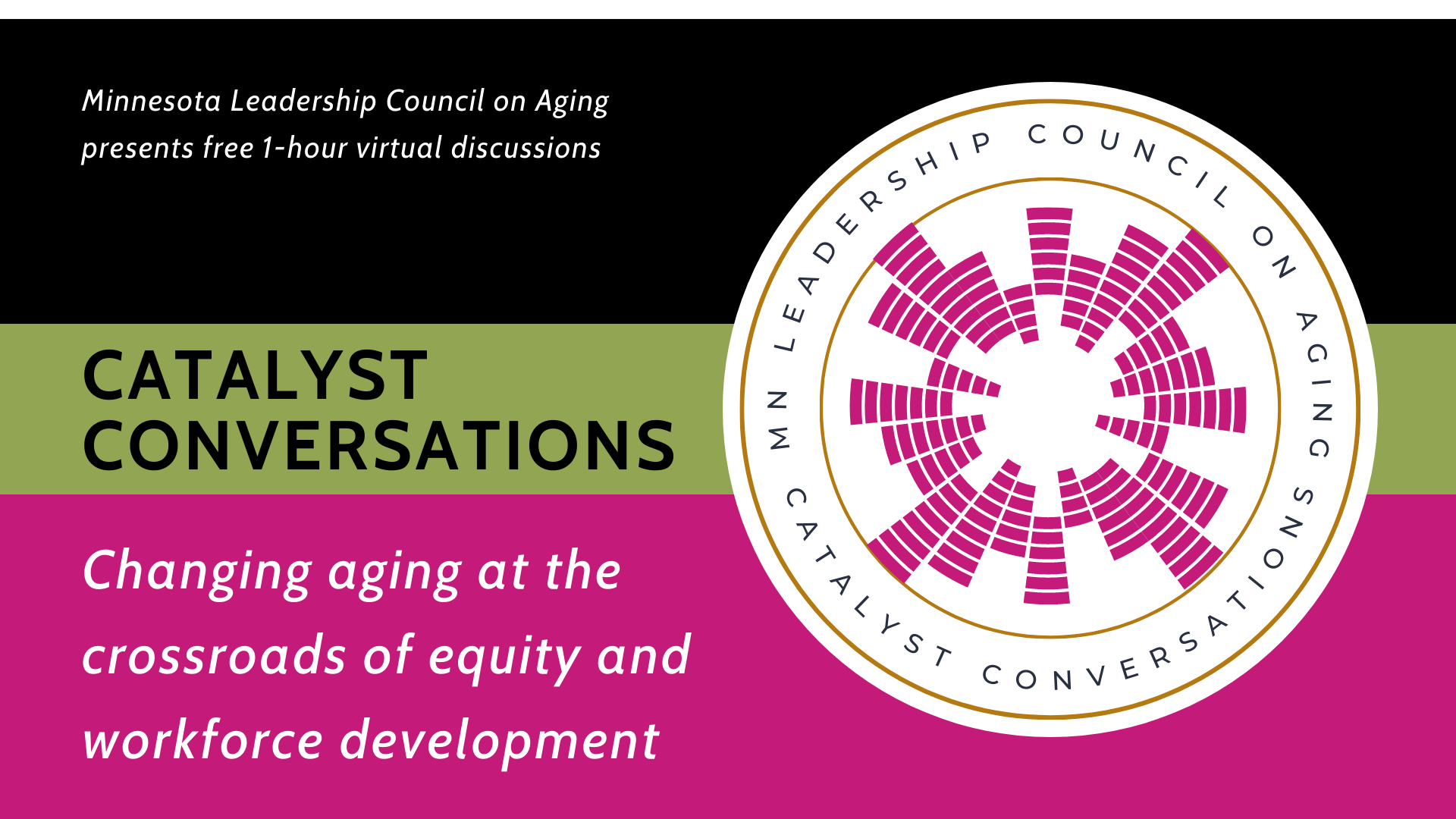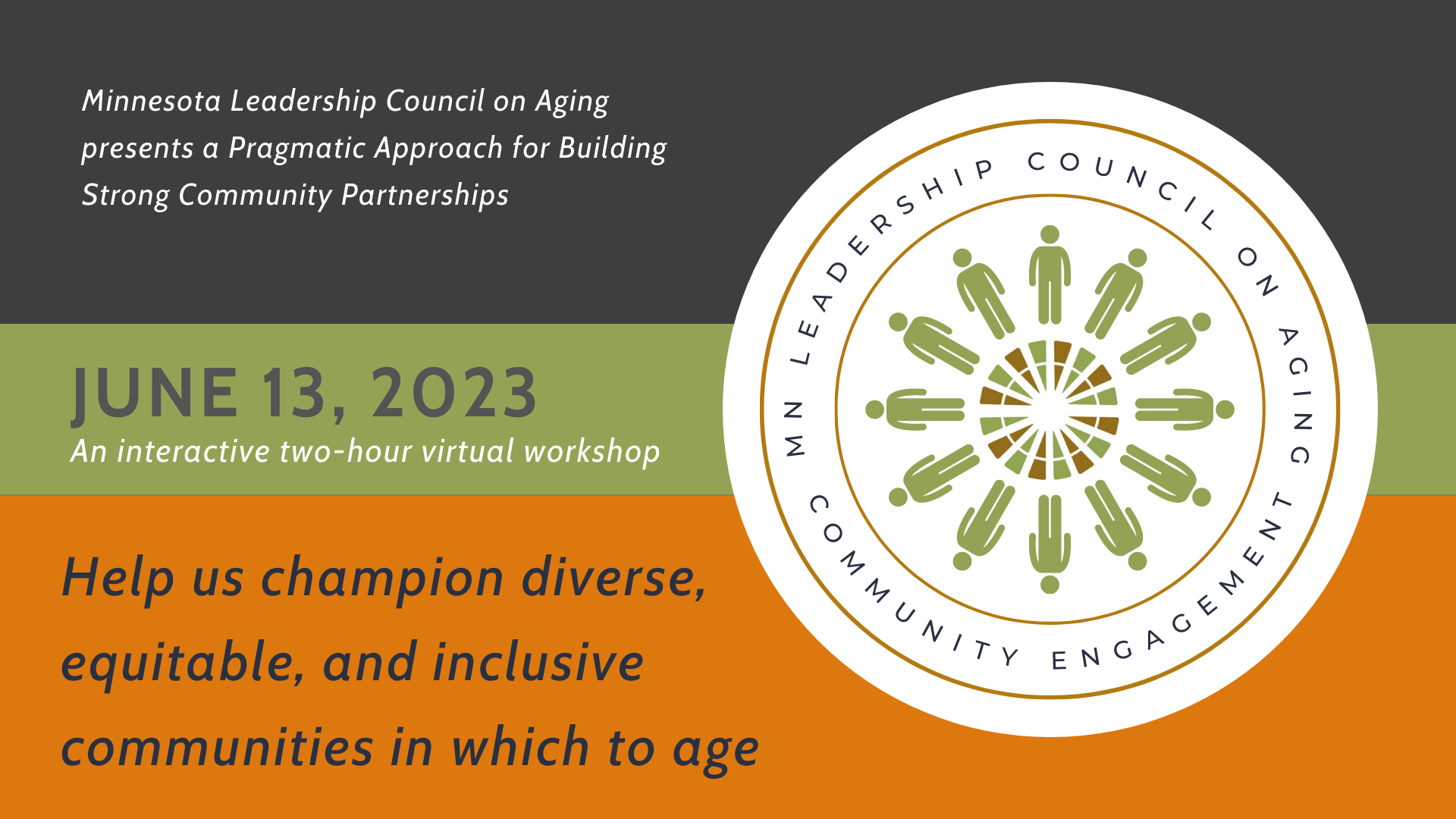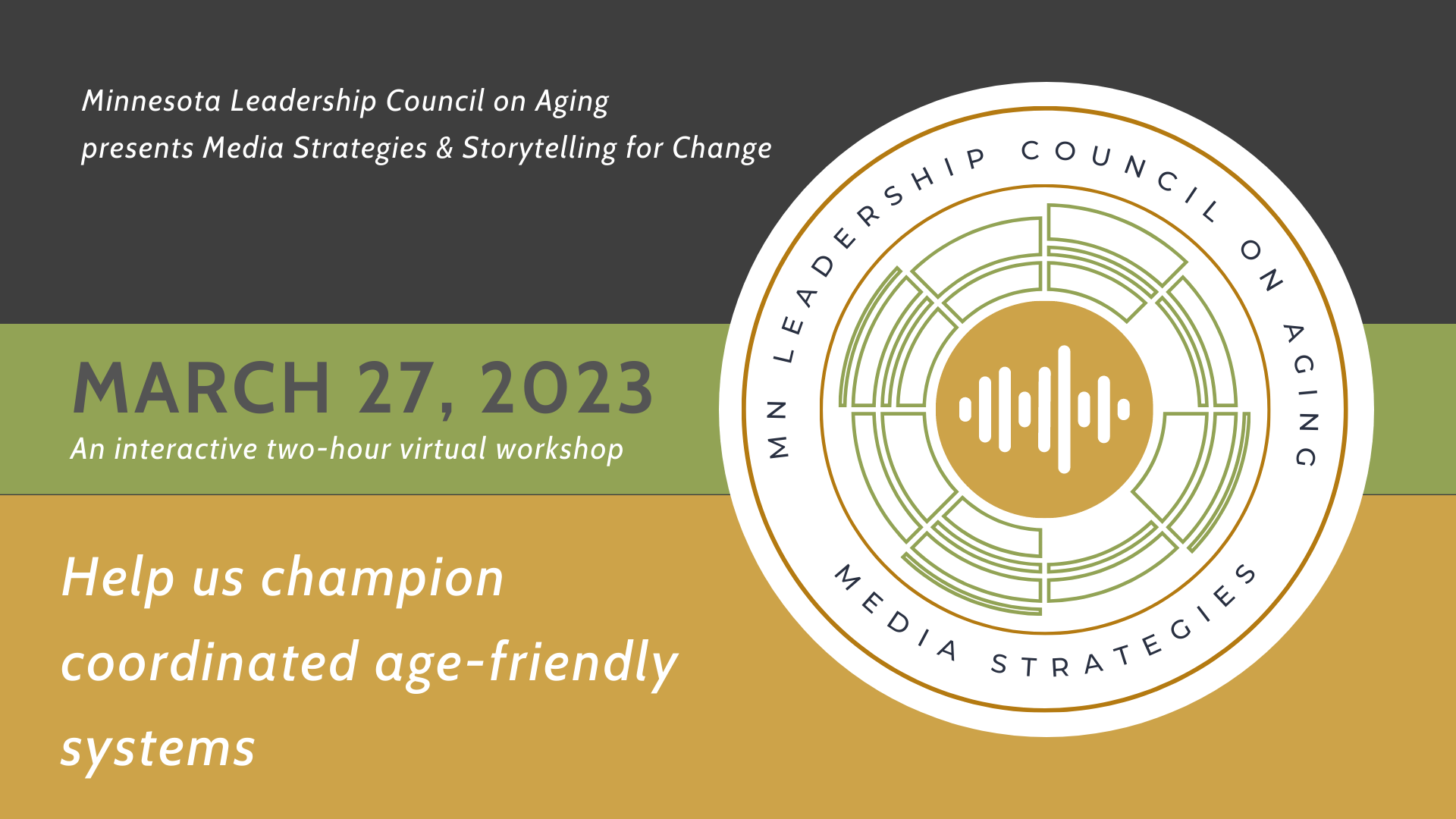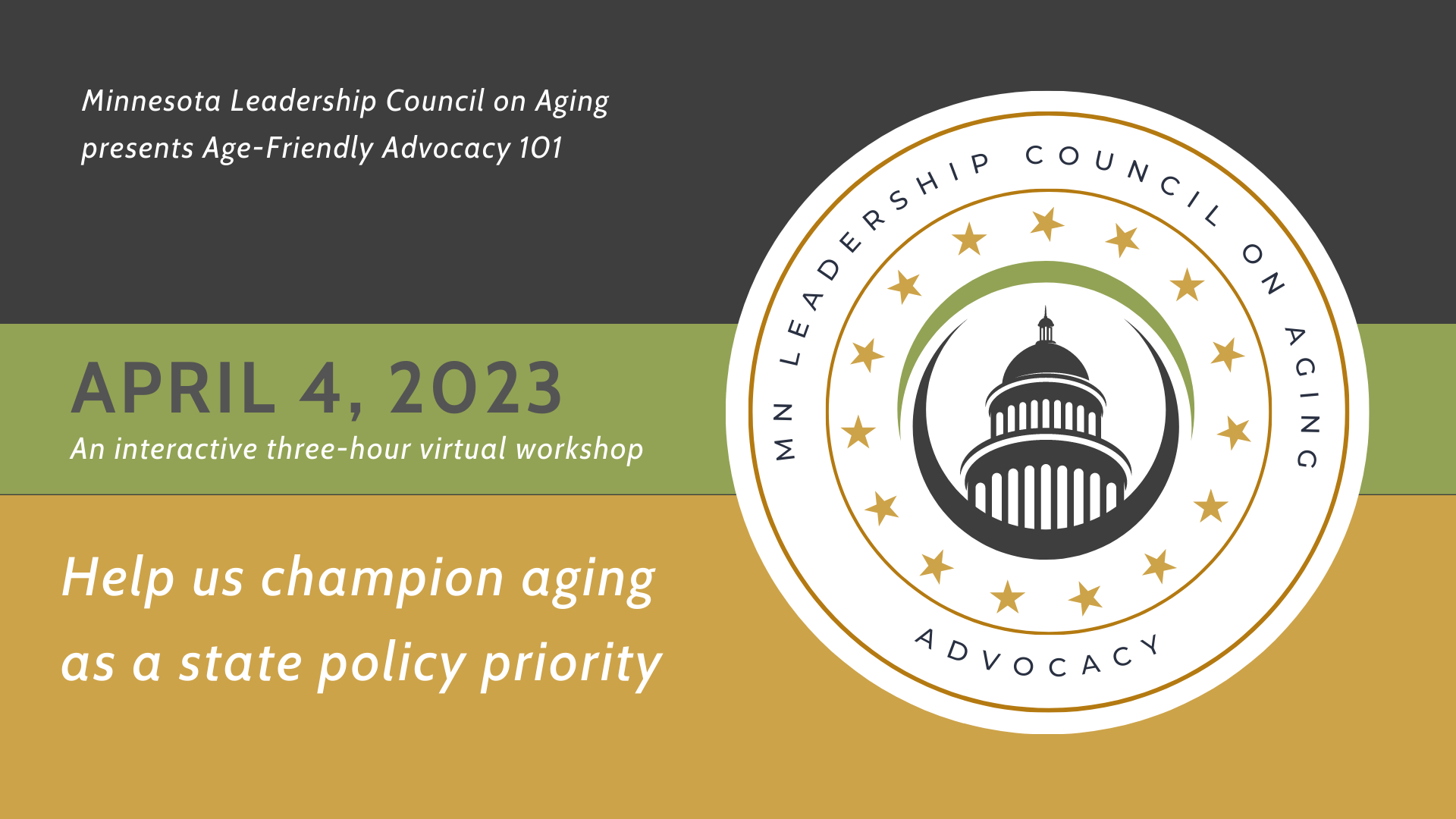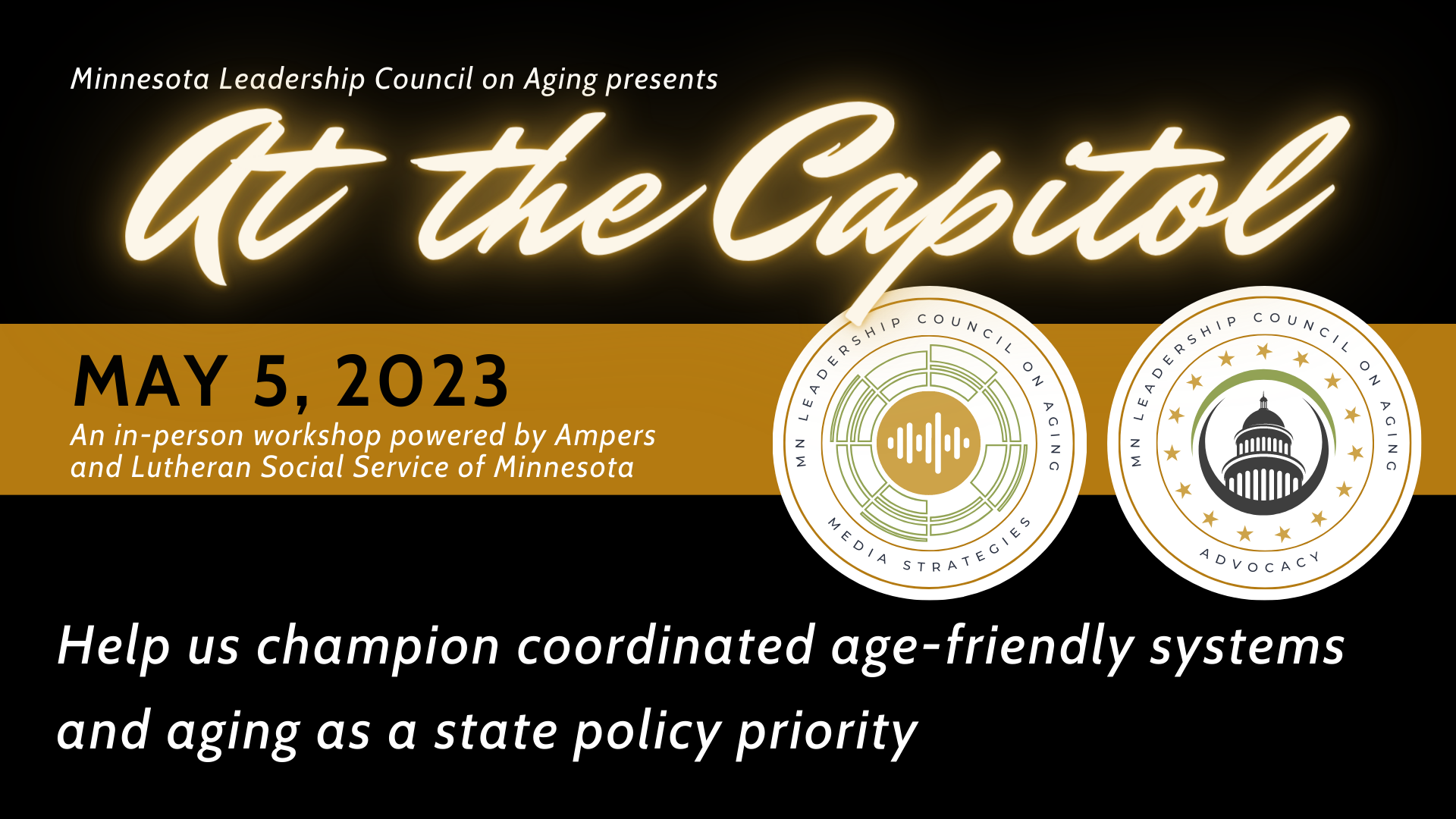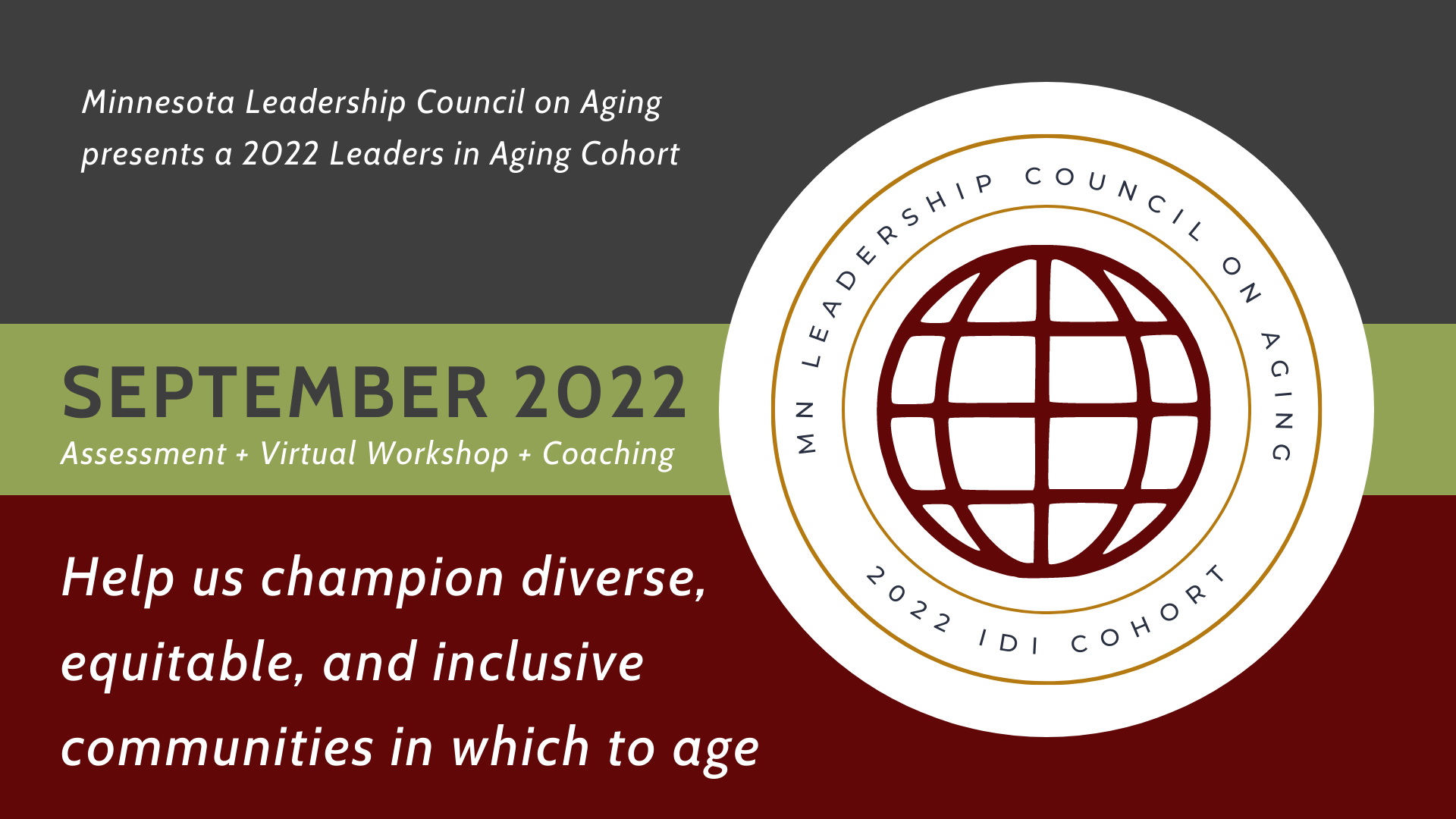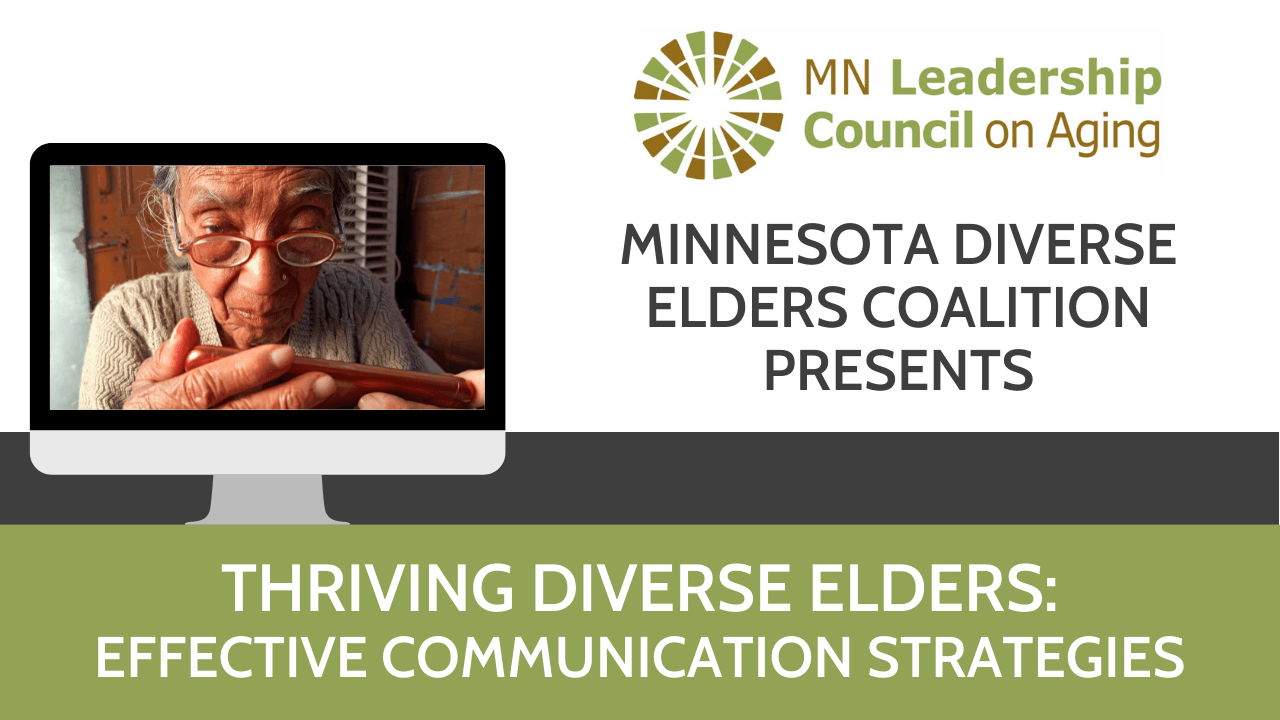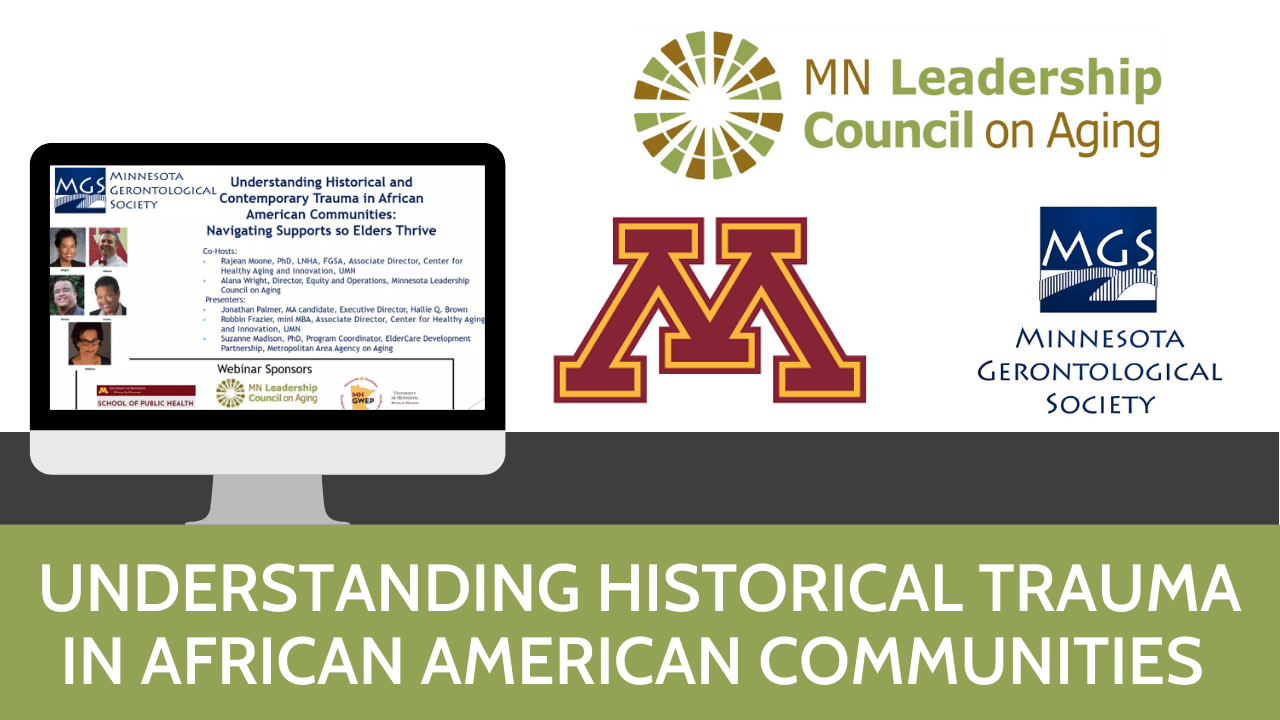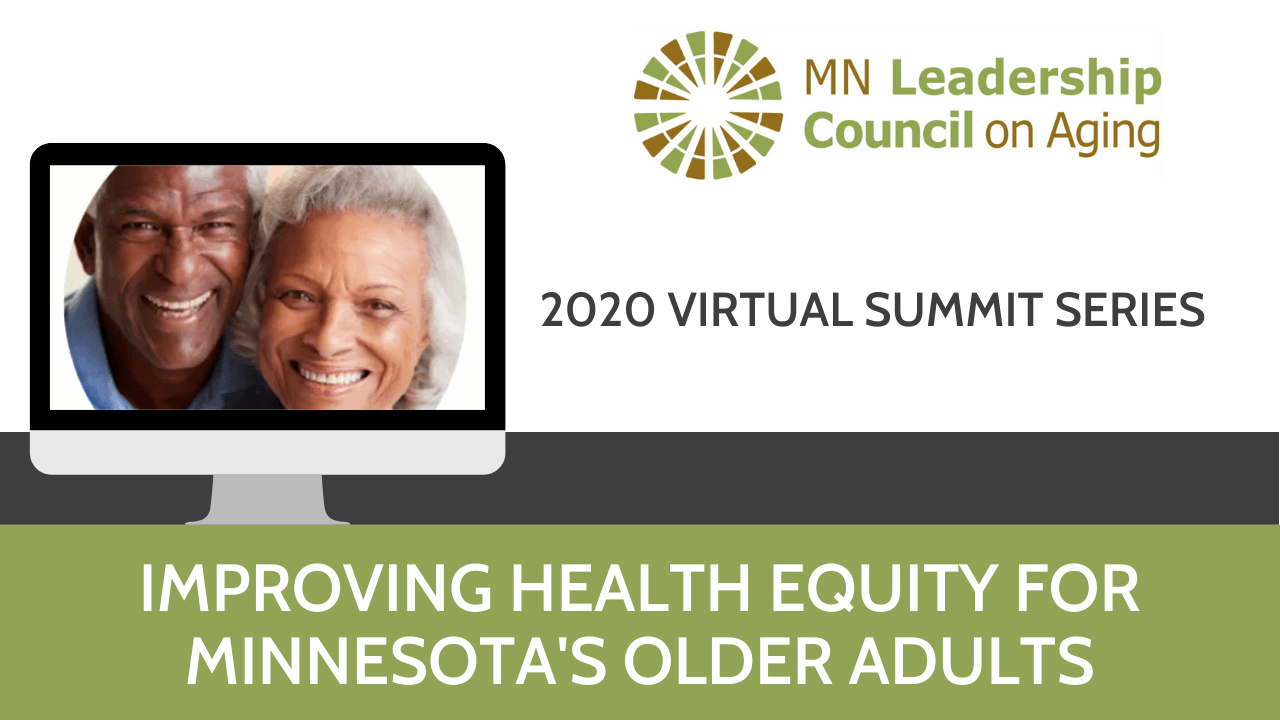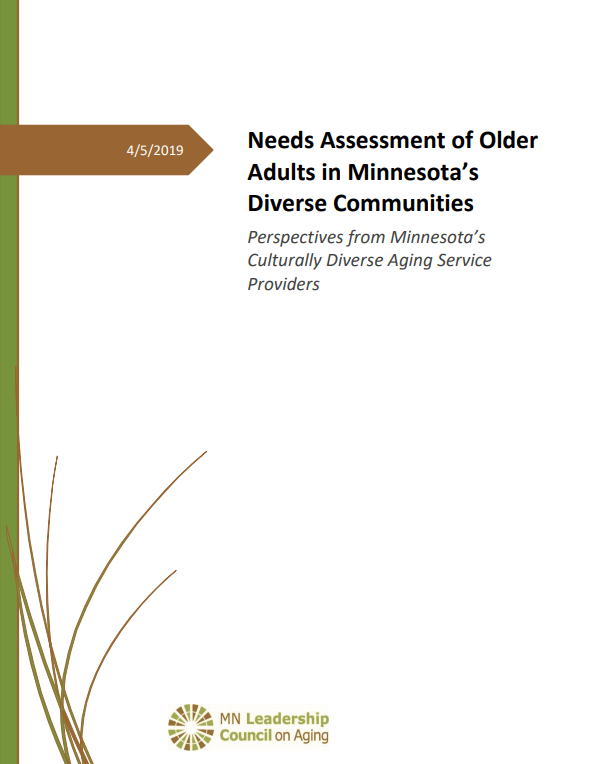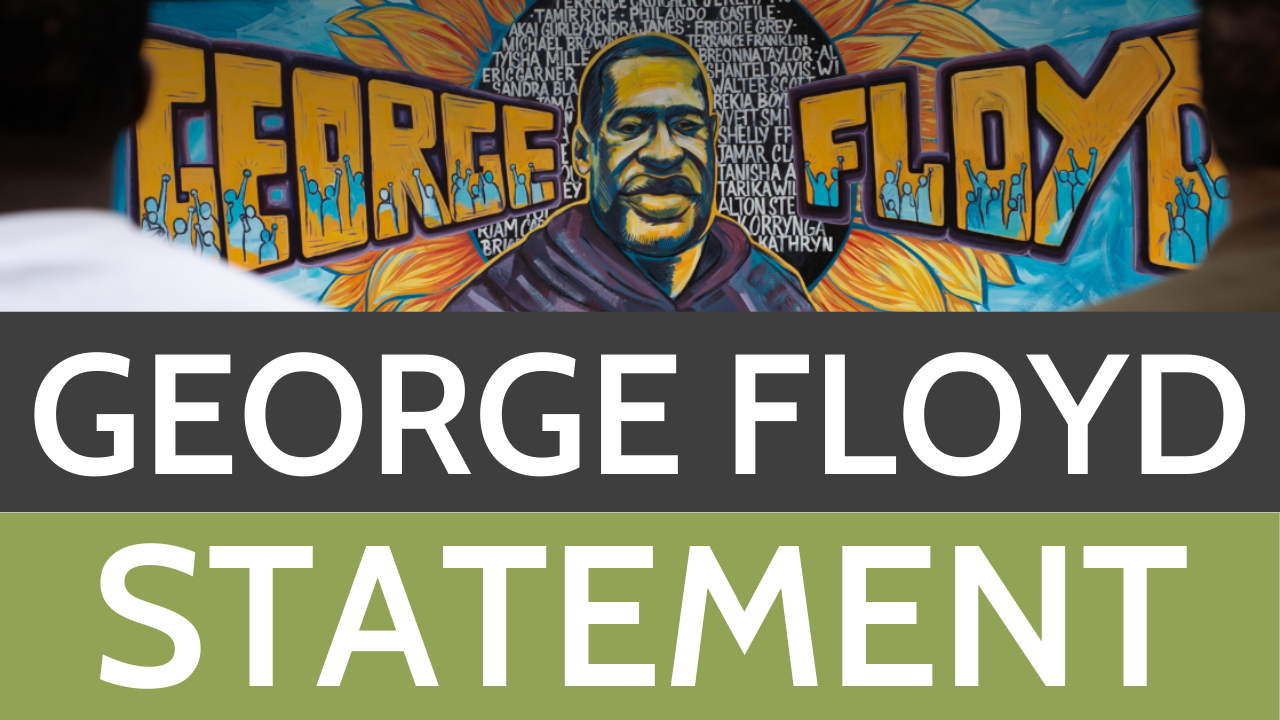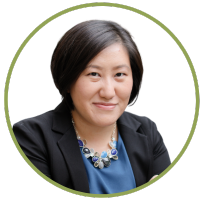Diversity Equity Inclusion
Every person deserves the right to age well.
We at the Minnesota Leadership Council on Aging believe that healthy aging in our state is a human right, and older adults deserve to have supports, services and systems to healthy aging regardless of race, culture, age and sexual orientation. In Minnesota, residential segregation, income inequality, food insecurity, environmental injustice and many other social ills have disproportionately affected communities of color and make worse the challenges facing diverse elders.
Although our state is consistently ranked among the healthiest and most senior-friendly in national polls, significant disparities persist between people of color, the LGBTQ community, and their white, cisgender and heterosexual peers. We know that significant racial and systematic bias exists within the aging sector and that work to change this is both a moral and economic imperative for Minnesota.
As our state's population grows increasingly older and more diverse, it is important that these unmet needs be addressed so that all Minnesotans have the opportunity to age well. Each day, at the forefront of our work, our leaders advocate to center diverse older adult voices, build community leadership, and develop strategic partnerships to champion diverse, equitable, and inclusive communities in which to age.
Case Example: Home Ownership
Populations in Minnesota that experience the greatest disparities in outcomes also experience the greatest inequities in social and economic conditions. Disparities continue throughout the life course and are often exacerbated as we age. For example, structural racism results in the disparities of homeownership between white people and Black, Indigenous and People of Color. This has profound implications as we age. Many older people use reverse mortgages to pay for increasing expenses for care or use funds from selling their homes to pay for long-term services and supports. Disparities such as home ownership contribute to the disadvantages faced by many of us as we age.
Our approach
Focus on the needs of the community - particularly those who have been historically excluded: Black, Indigenous, People of Color, LGTBQ+, undocumented, people with disabilities, immigrants and refugees
Ensure older adults have opportunity, access and use high-quality services and resources no matter their identities
Commit to doing the long-term work of becoming a racially diverse, equitable, and inclusive organization
Recognize the value in meaningful connection and engagement across all communities - reaching beyond our traditional allies and constituencies
Enter all relationships with humility, prepared to listen, learn, follow the lead of various communities, and adapt all our practices for mutual benefit
How we do it
- Increasing representation from communities that have been historically excluded in our internal and external networks
- Transforming our methods of developing policies, procedures, and legislation that ensures equity and fairness
- Promoting cross cultural dignity and autonomy
- Supporting the efforts of our members and partners in advancing racial equity and justice
- Increasing our capacity to be culturally competent, welcoming, and inclusive both inside and outside of our organization
- Analyzing our policies, procedures, practices and programs through an equity and social justice lens*
- Embracing and cultivating diversity among our staff, leadership, vendors, volunteers and in our partnerships with allied organizations as well as the people who participate in our events
* NOTE: An equity lens is a tool that helps make decisions by thoroughly analyzing possible implications of those decisions on groups that have been underserved, marginalized, and face disparities, including BIPOC, LGBTQ+, immigrant and refugee populations. A social justice lens is a similar tool that helps apply filters of access, agency, advocacy, and solidarity. Many examples of these tools exist.
Past Events
Featured Publications
Community Needs Assessment of Culturally Diverse Aging Service Providers >
This report was developed in partnership with the University of Minnesota and outlines interviews conducted with 15 culturally specific service organizations in Minnesota.
Minnesota Leadership Council on Aging
PO Box 4636, St. Paul, MN 55104
© 2025 Minnesota Leadership Council on Aging. All Rights Reserved.
